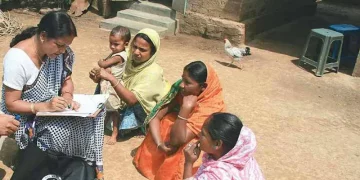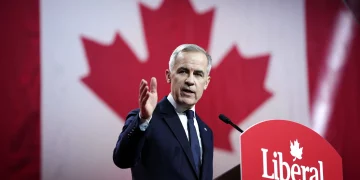The results of the recently held bypolls in seven Assembly segments in six states across north, south and eastern parts of the country, in a way, foreshadow the shape of things to come. In the next Lok Sabha polls in 2024 the ruling BJP will be pitted against an alliance of 26 Opposition parties which have come under the umbrella of Indian National Development Inclusive Alliance (I.N.D.I.A). The BJP is trailing behind the Opposition combine bagging three of the seven seats and conceding defeat to the INDIA bloc in four. Though no distinct pattern of voters’ preferences or pronounced swing in favour of the Opposition is noticeable, the signs are rather ominous for the BJP which has lost a seat in its citadel of UP to a Samajwadi Party (SP) candidate backed by the constituents of the INDIA. This is all the more significant, since it could offer two lessons to the Opposition combine. The first lesson is INDIA can trounce the BJP even in its much-touted bastion if they put up a single common candidate in each seat. The second lesson is it needs to sink inner differences which, otherwise, would give wrong signals to the electorate.
In Ghosi in Uttar Pradesh, the BJP’s Dara Singh Chauhan lost the election to the SP candidate. Chauhan’s defeat has brought to fore a fatal flaw in the organisational and electoral strategy of the BJP being followed for the past few years. This became glaringly apparent in the last Assembly elections in West Bengal. But, the UP bypoll result shows the strategy may backfire elsewhere in the coming Lok Sabha poll as well. The BJP has in recent times mastered the art of engineering defections in Opposition ranks and forming governments with the help of splintered groups from other parties. The tactic of relying on factional leaders from the Opposition parties and their support base to form governments is fraught with risks. Notably the BJP, inspite of all the brave talk, has not been able to build its party organisations across the country that would bring it electoral dividends. That may be because the anti-minority and Hindutva ideas of the saffron party may not get the kind of blanket instant support it has received in some parts of the Hindi-speaking belt in north India. The BJP seems to have officially adopted the strategy of exploiting fissures and differences in Opposition parties to swell its own ranks and stake claims to governments with breakaway, disgruntled elements. That such a policy may boomerang on the party became evident when splintered groups and dissidents in the Trinamool Congress in West Bengal, who had been admitted to the BJP fold with open arms, were subsequently defeated because people, in general, are becoming averse to turncoats. Many of them even returned to their mother party.
The BJP candidate of Ghosi in UP was the sitting SP MLA who crossed over to the saffron party and sought re-election as a BJP MLA. It is not yet clear whether the voters in the constituency decided to punish him for the betrayal or whether it was the Opposition unity that led to his defeat. But, what is even more disconcerting for the BJP is that the results show it may be defeated if Opposition parties, banded together under the INDIA banner, put up a common candidate against it. The SP candidate was supported by the Congress, the CPI(M) and the CPI(ML)-Liberation in the state. Uttar Pradesh is critical for the BJP’s fortunes in 2024. The Ghosi byelection attracted national attention since SP chief Akhilesh Yadav and Chief Minister Yogi Adityanath both were observed as having campaigned hard. This bypoll was also a test for the BJP’s efforts to reinforce its multi-caste Hindoo coalition. But, in the end the voters seem to have rejected it.
The BJP retained a seat in Uttarakhand, while it lost a sitting seat in West Bengal to the ruling Trinamool Congress. The ruling Jharkhand Mukti Morcha retained Dumri in Jharkhand.
Dhupguri in West Bengal witnessed a combination of INDIA bloc parties facing off against another constituent, while Puthuppally in Kerala had the parties in the combination fighting each other. In Boxanagar in Tripura the CPI-M lost for the first time since 1988 to the BJP. The BJP also retained Dhanpur in that state. The CPI(M) has alleged electoral malpractices and violence by the ruling BJP in Tripura.
The Congress is drawing comfort from the victory of four INDIA bloc candidates in the bypolls. It may also be justified, to some extent, to believe that the people have accepted the Opposition alliance as an alternative to the BJP.
It is rather too early for the Opposition to draw any hasty conclusion. As a sample study, the data gained from the voters’ preferences in the seven seats are too inadequate. At best, the results point to positive possibilities. Real clincher would be if every single constituent of the 26-member INDIA bloc decides to sacrifice seats, if required, to attain the ultimate goal of dislodging the BJP. If the seat-sharing exercise can be handled smoothly, there is a distinct opportunity for success as the average voter is tired of only rhetoric and showmanship but no real tangible development taking off the ground while prices of all essential items are shooting through the roof.






































